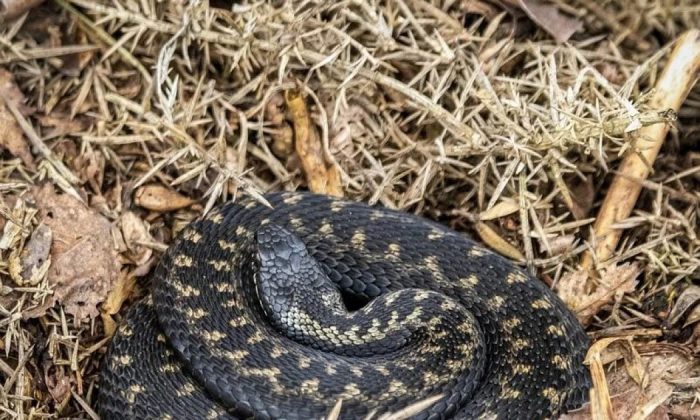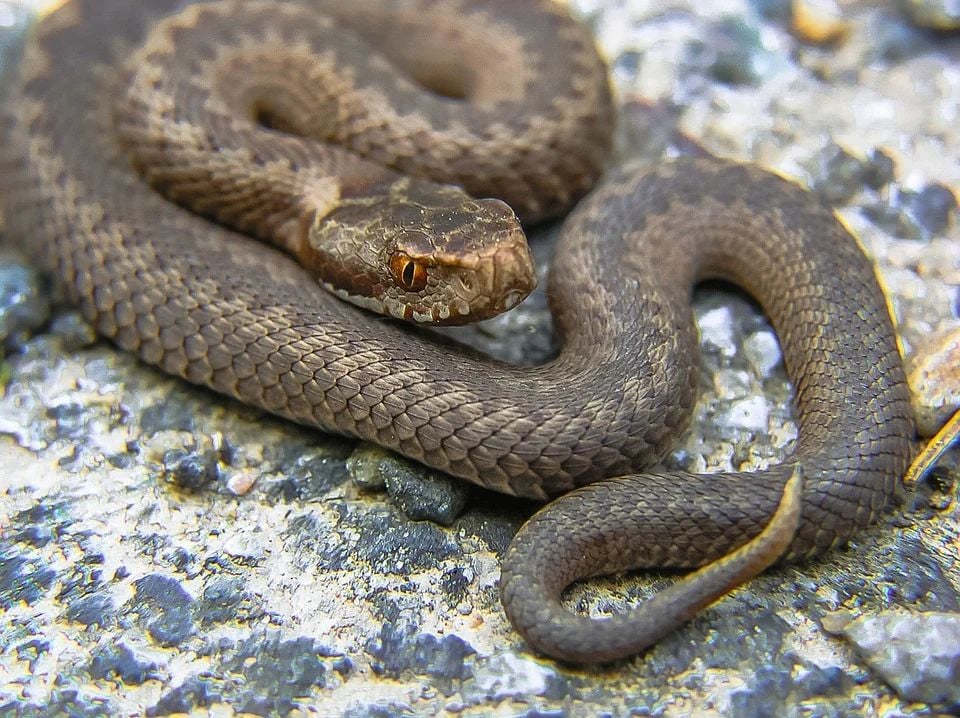What should you do if you meet a viper in your garden?

You can encounter the common viper (Vipera berus) almost anywhere in Europe. As any reptile, it loves sunny places, piles of dry grass, grates, twigs and moist places hidden under various bushes and roots. So, that tells you that it is not so easy to see a viper. Many reptiles are usually afraid of humans and try to move away in time but what should you do if a viper stubbornly insists on staying in your garden?
Well, let us first tell you that there are three subspecies of vipers:
- common viper (Vipera berus berus),
- Bosnian viper (Vipera berus bosniensis),
- Sakhalin viper (Vipera berus sachalinensis).
This is based on the currently valid taxonomy but there are many researchers, which may soon force us to rewrite the book. Fortunately, we are focusing on a totally different thing. Not all vipers have the characteristic zigzag stripe on the back . Some vipers do not have it at all, or it may be very hard to see, especially if the skin is too dark. But you can tell by the pupils (that is if you can get close enough… which is not recommended). Pupils have the typical vertical slit, and that is what makes them different from other snakes living in our corner of the world.
Photo: Pixabay
Try to scare the viper away and do not step on it!
The viper reacts strongly to sounds, especially to ground shaking, so if you feel that you my encounter vipers make a stamping noise while you walk and before you sit down, make sure that there are no unpleasant surprises. However, after a certain time, vipers often get quite used to the presence of humans and the more they get accustomed to your presence the more danger there is.
Vipers are not as dangerous as you may think
Yes that is true. Contrary to popular belief vipers are not be so bad, but what should you do if you get bitten? Well, most likely nothing,. Statistically, no one has died from a viper attack in our country since 1993. That goes for vipers living in our regions only…However, that is not to say that you should not be careful. This mainly applies to the elderly and small children. You see, not every bite is poisonous. Viper may just bite without using its poison. But if it uses poison, the wound usually swells up. Only 20% of viper bites create major complications – such as breathing difficulties or even anaphylactic shock.
There is no need to tie a bandage above the wound, just put ice on it. A few days of rest should be enough, you should call an ambulance only if you experience problems. If you have problems, you may consider yourself very unlucky. According to statistics, less than 200 people have been bitten by vipers over the past 18 years. So, there is definitely no need to panic or even kill these interesting animals. By the way – the common viper is protected by the law…
Preview photo: Pixabay

Gardening is my hobby, I have a lot of experience and I am happy to share it.









0 comments